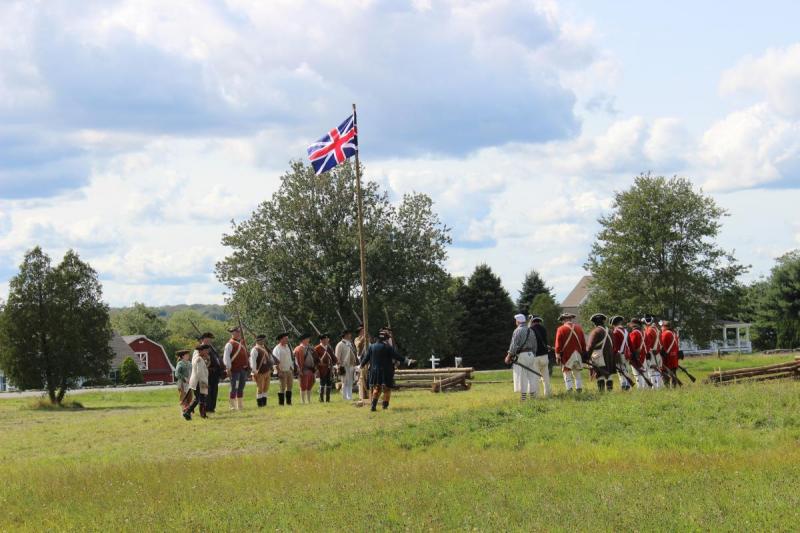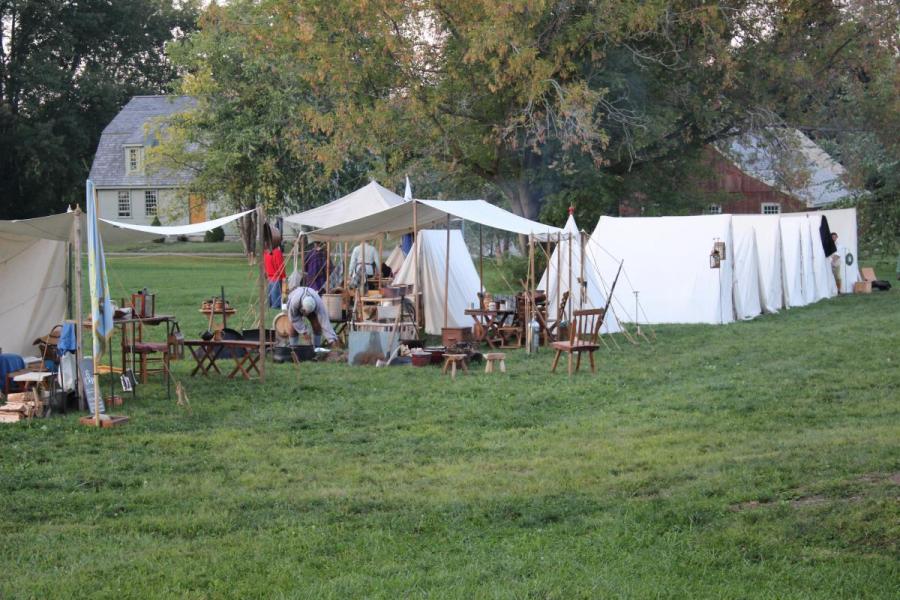Heartbeat of the Revolution

Credit: Alicia Lamb, Lebanon Historical Society
Much of Lebanon’s impressive, history-shaping role in the Revolutionary War can be attributed to the patriotic Lebanon-born Governor Jonathan Trumbull. Although Trumbull was the colonial governor of the state, he sided with the colonists against the British even before the breakout of the war.
Trumbull opposed British laws known as the Intolerable Acts intended to punish the colonies for acts of rebellion like the Boston Tea Party. When the Battles of Lexington and Concord broke out, Trumbull ignored requests from the Massachusetts colonial governor to provide assistance. Instead, he sent supplies with men from Lebanon marching to join the battles.
When the Connecticut General Assembly created the Council of Safety, Gov. Trumbull convened it at his Lebanon store, now known as the War Office. From this location, Trumbull and his associates planned the delivery of supplies to the Continental Army as they waged the war for Independence. Council Secretary William Williams, also a Lebanon native, went on to sign the Declaration of Independence.
Among the individuals known to have met with Governor Trumbull here in Lebanon are:
- George Washington
- Henry Knox
- Israel Putnam
- Samuel Parsons
- Joseph Spencer
- Jedediah Huntington
- Marquis de Lafayette
- Count Rochambeau
- Marquis de Chastelux
- Duc de Lauzun
For seven months during the height of the war, French soldiers camped out in Lebanon after their cavalry landed in Newport. Tents and temporary barracks were erected around the fields surrounding the town Green. General George Washington eventually visited the encampment and viewed the French troops. Washington is said to have stayed in Lebanon during his visit and may have slept at the home of Jonathan Trumbull Jr.

Credit: Alicia Lamb
Jonathan Trumbull Jr. was Gov. Trumbull’s equally influential son. He served as paymaster general for the northern department of the Continental Army, the first Comptroller of the U.S. Treasury, and military secretary to General George Washington from 1781 to 1783.
With the War of Independence won, Jonathan Trumbull remained in office as the Governor of the State of Connecticut. He was one of just two colonial governors to retain his post following the victory in the war. He died in 1785 and was buried in Old Cemetery on Exeter Road, now known as Trumbull Cemetery.
Meanwhile, his son, Jonathan Trumbull Jr. went on to serve as a representative in the first Congress elected under the new Constitution in 1789 and the second Speaker of the U.S. House of Representatives. He then served in the U.S. Senate but resigned to return to Connecticut to become lieutenant governor in 1796. In 1797 Jonathan Trumbull Jr. was elected Governor of Connecticut, serving until his death in office in 1809.
Today, the homes of both men — Jonathan Trumbull and Jonathan Trumbull Jr. — along with the War Office are historic sites open to the public.
The Gov. Jonathan Trumbull House & Wadsworth Stable is managed by the Daughters of the American Revolution. The Jonathan Trumbull Jr. House Museum is managed by a cooperative venture between the Town of Lebanon and the Lebanon Historical Society. The War Office is managed by the Sons of the American Revolution.

